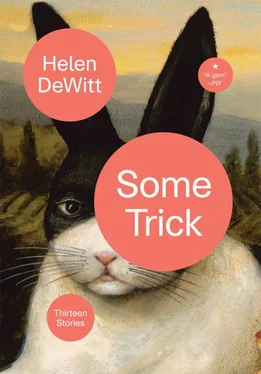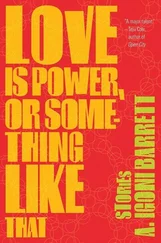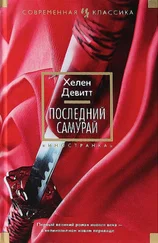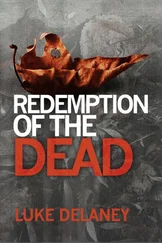Helen DeWitt
SOME TRICK
THIRTEEN STORIES
If ever if ever a wiz there was
The Wizard of Oz was one because
Because because because because because
‘I have nothing to give you but that’s all right because
Knowledge of lack is possession
Recognised absence is presence
Perceived emptiness plenitude.
To have not
And know it
Is to have.’
‘True wisdom is knowing you don’t know.’
The Scarecrow hadn’t the brain to see through it.
He bought it.
‘I don’t understand,’ he thought.
‘That’s my wisdom, that is.’
‘What would you do with a heart but try not to hurt?’
The Tin Man hadn’t the heart to disappoint him.
He thanked him.
‘I feel nothing,’ he thought.
‘But I wouldn’t hurt a Behaviourist.’
‘Courage is not being fearless, it’s facing your fear.’
The Lion hadn’t the nerve to say he was scared.
He roared.
‘I’m still terrified,’ he thought.
‘But you’ll laugh if I say it.’
Next time someone tells you desire
Is a trick of grammar
Tell him
If what I have is what I said I wanted
It’s not what I wanted
I know what I want
But I don’t know its name.
Could you say that to a puzzled, hurt, frightened old wizard?
Of course not.
You’d say
‘Thanks very much then.’
But Dorothy? I don’t BELIEVE Judy Garland could fake it.
I think she was glad Technicolor was only a dream
Glad to find she had never left home
Glad to wake up in grey black and white.
Because because because because because

Her father was an engineer. He worshipped Daimler, so there was only one career for him. He had no particular opinion on the Jews; if you would ask him he would not be interested, probably it was an inadequate race but he wasn’t interested. If you are an engineer the only thing you care about is machines. A human being is never going to be as perfect as a machine so it is not interesting to an engineer to think about racial purity.
She was saying things to Nuala so people looking at the paintings would not feel they were under surveillance. It’s always a bit like working in Top Shop or Dorothy Perkins or Wallis, some shop where they have this etiquette of leaving the customer at arm’s length.
These open days are hard at first, but you get used to them. People come into the studio and sometimes they walk straight out. Or they look at the paintings and they want to see something figurative lurking behind it all when there is no behind. But the paintings are so explosive they don’t know what to do with it. And you’re sitting there with this poxy table with a bowl of cheese doodles and you feel like a complete wally.
This bloke was walking about.
Sometimes this mania for hospitality takes possession of you. She asked if he would like a cheese doodle.
He said I’m fine thanks.
He had an Italian accent. He had one of these haircuts that all the men have these days, where there is hardly any hair, it is like short fur on the skull. His eyes were this light glowing grey, like those little monkeys, those lemurs that you see on TV or at the Zoo, and he had this pulpy, kissy mouth. He was standing by 1.1.4.
When people number paintings they do it the wrong way. You get an idea while you’re working on a painting and you have to do it in another painting because otherwise you would use the first painting. It’s like taking cuttings from a plant. So if you just use ordinal numbers you lose all that. You lose a distinction, because sometimes a painting is just out of the blue.
Sometimes you know there’s a gap between one painting and another, that was a painting you didn’t do, so you can show that with the number and that’s good, the missing painting still has its number like a name on a grave.
He was wearing a black t-shirt and a black cashmere jacket and black jeans, these really expensive jeans, and these red cowboy boots.
The paint is always white, this fat gloopy stuff, and people have never seen anything like it. Sometimes it’s 20 centimetres thick or maybe more, it can take a year before it’s really dry. You have to give people really careful instructions when they buy one. Once this gay couple fell in love with this painting that was really not ready to be moved but they said they would obey her instructions implicitly and of course Serge was keen to make the sale so they took it and this great big splodge fell off on a brand new carpet.
You weren’t supposed to live in the studio but of course people did surreptitiously.
If you are working with white you get fanatical about having the specific white, and you are in a constant state of panic that the white will be discontinued. Robert Ryman liked to work with a white from Winsor & Newton called Winsor White, so when Winsor & Newton decided to discontinue production he bought a whole consignment and filled a closet with it, and this is what you can afford to do if you are Robert Ryman. So this is one problem of being poor, that you can be cut off from the work you would go on to do by the discontinuance of a white. This is something people can understand, the expense of materials, these things you can touch and see. But if there is a painting that would be dry in a week and another painting that would be dry in six months there is that pressure to paint something that will survive in the time you know you can pay for. So that is the trade-off, the more white you buy the less time you can pay for. So you are always living hand to mouth.
She was two months behind on the rent on the studio. If she would get kicked out she would never find another studio for £300 a month.
Serge owed her £5,000 from the London Art Fair two years ago.
The bloke was looking at 1.1.11111.1.
Nuala was sitting on the tall stool to keep her from feeling like a complete prat.
She said people didn’t talk about the War when she was growing up. There was this very tidy surface and you didn’t know there was anything but the surface. They didn’t talk about the camps. So then when she was 16 Max told her about them and she understood the Baader-Meinhof, she wanted to blow up a building. Her father made her do the Geselle which was three years of hell. She knew if she stayed she would kill herself. So she hitchhiked for about 6 years around Asia.
When you are that age you don’t think about the cut-off age for the Turner Prize. You don’t realise that the people who are going to get their work to a certain level before the cut-off are not hitchhiking around Asia. If you would realise it you would not be able to do anything about it, because if you would not hitchhike around Asia you would not be an artist. So you can’t say if I would have gone to art college then.
Nuala had helped with the cheese doodles and twiglets and there was juice. Wine would be better but if it’s crap wine what’s the point? And what would it be but crap wine?
She said when she was growing up her father would not let her do the Abitur, he thought she was too thick, he made her go into an apprenticeship in dressmaking. They sat in this cellar and everything had to be done just right, making buttonholes, if you did it wrong you had to do it again and that was 3 years. At the end you had to do a Gesellenstück, it’s quite an old-fashioned word, maybe they don’t have it in English, to show you had mastered the craft. It had to have all these features, this special collar and these special cuffs and special pockets.
Читать дальше













